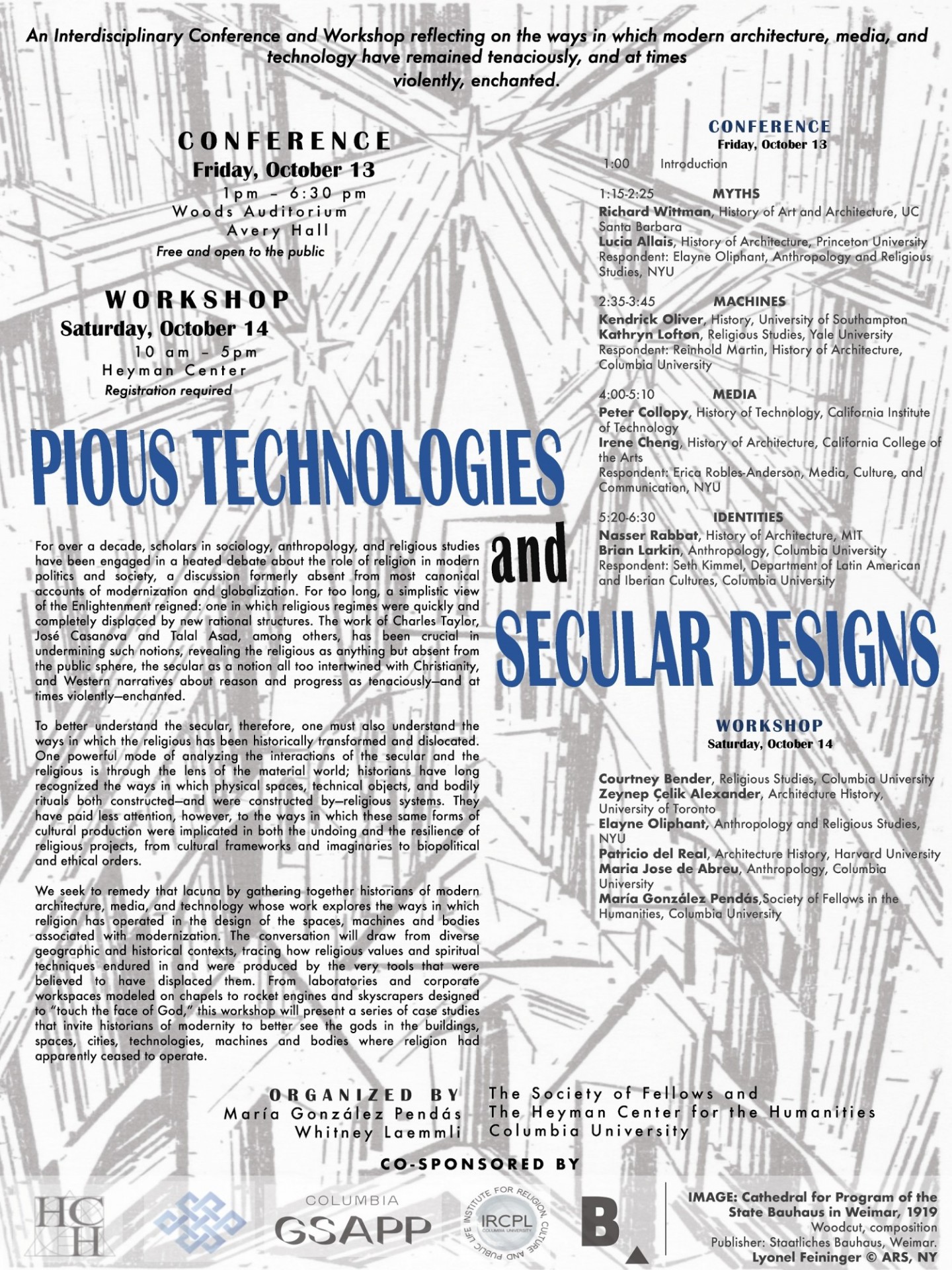Workshop featuring Professor Maria José de Abreu.
For over a decade, scholars in sociology, anthropology, and religious studies have been engaged in a heated debate about the role of religion in modern politics and society, a discussion formerly absent from most canonical accounts of modernization and globalization. For too long, a simplistic view of the Enlightenment reigned: one in which religious regimes were quickly and completely displaced by new rational structures. The work of Charles Taylor, José Casanova and Talal Asad, among others, has been crucial in undermining such notions, revealing the religious as anything but absent from the public sphere, the secular as a notion all too intertwined with Christianity, and Western narratives about reason and progress as tenaciously—and at times violently—enchanted.
To better understand the secular, therefore, one must also understand the ways in which the religious has been historically transformed and dislocated. One powerful mode of analyzing the interactions of the secular and the religious is through the lens of the material world; historians have long recognized the ways in which physical spaces, technical objects, and bodily rituals both constructed—and were constructed by—religious systems. They have paid less attention, however, to the ways in which these same forms of cultural production were implicated in both the undoing and the resilience of religious projects, from cultural frameworks and imaginaries to biopolitical and ethical orders.
We seek to remedy that lacuna by gathering together historians of modern architecture, media, and technology whose work explores the ways in which religion has operated in the design of the spaces, machines and bodies associated with modernization. The conversation will draw from diverse geographic and historical contexts, tracing how religious values and spiritual techniques endured in and were produced by the very tools that were believed to have displaced them. From laboratories and corporate workspaces modeled on chapels to rocket engines and skyscrapers designed to “touch the face of God,” this workshop will present a series of case studies that invite historians of modernity to better see the gods in the buildings, spaces, cities, technologies, machines and bodies where religion had apparently ceased to operate.
Please note, Day 1 of the event is happening in Wood Auditorium, Avery Hall, and it is free and open to the public. Day 2 requires pre-registration. If you’d like to register for Saturday’s workshop, please fill out the form provided here: https://goo.gl/forms/EHSgb3CUc7JZQ0F33
The full schedule of events and additional information can be found here: http://heymancenter.org/events/pious-technologies-and-secular-designs/
This event is being organized by the Heyman Center for the Humanities with cosponsorships from the Institute for Religion, Culture, and Public Life; The Society of Fellows in the Humanities; Columbia University School of Architecture; and the Temple Hoyne Buell Center for the Study of American Architecture.
